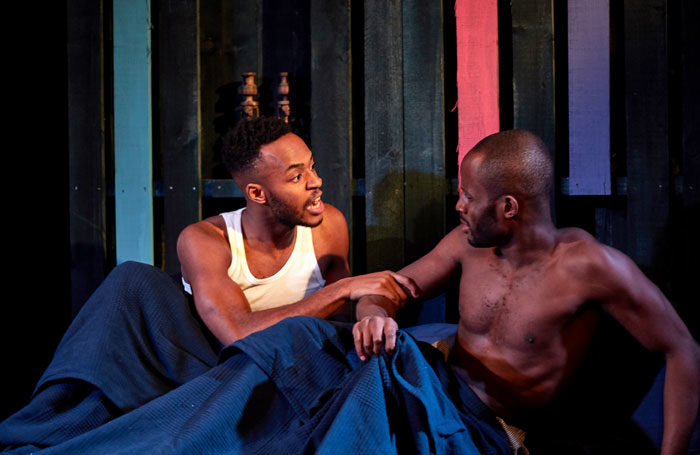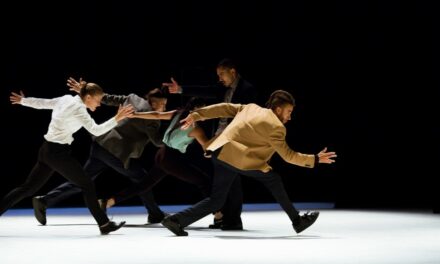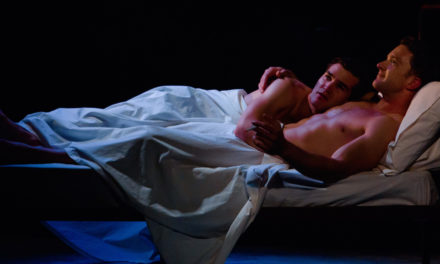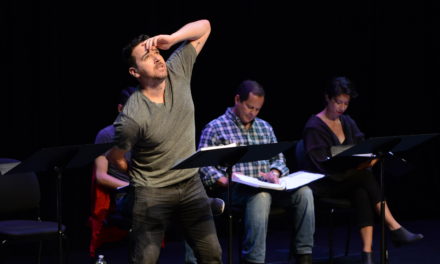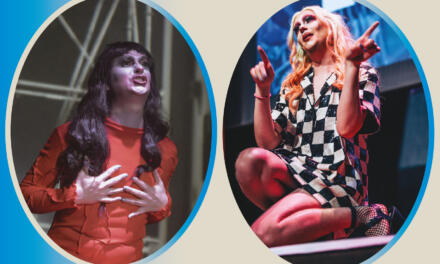The Oberon Book Of Queer Monologues, just released, is an astonishing new collection which includes more than 40 pieces from a range of LGBTQ+ theatre. What began as a volume intended for auditioning actors, quickly became the first anthology of its kind, chronicling over one hundred years of Queer and Trans performance, including previously unknown and never-before-published works.
Here, Oberon’s Publishing Assistant Serena Grasso, gives us an insight into the process of helping to curate this incredible new book
What were yours and Scottee’s aims for this book when you started putting it together?
I came on board the project a few months after its inception. Oberon has a long list of monologue volumes for practitioners, such as Monologues For Black Actors, so a queer collection had been in the pipeline for quite a while. Once the book started to come together it became clear that we were no longer making just an audition toolkit, but creating a record of queer theatre history that we hadn’t seen before. We made the conscious choice to especially include voices that are usually excluded from the “gay canon”– POC, women, anything beyond the “G” in the acronym, and every intersection of those. We debated whether to only include work by playwrights who were queer, but that got trickier and trickier as we moved further back in the timeline–playwrights who may not have been out for safety, or who did not ascribe to gender and sexuality the same way we do now. So we got rid of that, but it was a very interesting discussion to have.
Talk us through the decisions the team made about which significant queer plays to include in the collection, and why.
There was a lot of back and forth on some of the better-known pieces, all boiling down to: is this necessary? Do we need to include this uber-popular, easily accessible play? We tried to create thought-provoking parallels with the pieces we chose– ie. Angels in America comes directly before Paul Boakye’s Boy With Beer, and both were written around the same time. We thought to have them side by side offered an interesting look at differing experiences of the AIDS crisis in a (mostly white) New York setting versus that of a black British community. Neil Bartlett is another established writer whose work we were really keen to have–deeply political and in line with the themes of the collection.
Could you elaborate on the same process, but for less well-known plays?
This is really where our core aim came into play–spotlighting voices that have been sidelined within the queer community itself. It might sound obvious, but the Venn diagram of “lesser-known plays” and “marginalized writers” is often a full circle–hence why we focused on rediscovering these works and bringing them to a new audience. To get back to the Boy With Beer example: why has this play, that was written at the same time as Angels In America and shares with it a lot of key concerns, gone mostly under the radar for over twenty years? We put the anthology together by answering a lot of these questions.
Some of the monologues are from spoken word pieces or are short monologues that haven’t been taken from plays. Could you take us through the reasons for going further afield than published plays or plays that have been produced?
Spoken word is where some of the most exciting stuff is happening! I think traditional definitions of “theatre” and “playwriting” have often been hostile to outsider voices, and queer performance has had to really f*ck with conventional theatre form to assert our own voices. Think of cabaret and drag, for example, not just spoken word–queer performance blends it all together. It would have been a huge disservice to our history to exclude them in favor of “plays,” in the more traditional sense of the word.
How did you find/discover particularly obscure/erased playwrights?
Scottee and I have both been immersed in queer performance culture for years (Scottee more than I, to be fair!), so it was interesting to see how much of what we both knew was oral history. I’d love for someone to create a free online directory at some point. Other than that, it was a lot of Googling and brainstorming. It wasn’t so much finding out about plays that was difficult, but accessing the works. A lot of them were never published or have gone out of print. There were many sessions we spent scouring the British Library!
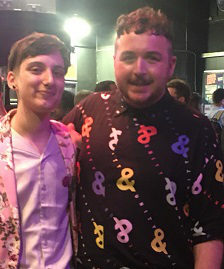
“Scottee and I have both been immersed in Queer performance for years.”
How hard was it to find queer playwrights or significant queer characters from early on the 20th century?
Very hard! Again, you’re treading a really tricky line when you try to assign modern-day definitions of sexuality to early 20th century playwrights or assume that closet or censorship weren’t factors back then. We went looking for mostly queer characters for the first half of the twentieth century–and even then, it was rare that those plays made it into print.
Plays like God Of Vengeance and The Drag were even pulled from the stage, their writers and producers indicted on obscenity charges. Or you had the opposite–someone like Angelina Weld Grimké, who was the openly queer female figurehead of the Harlem Renaissance but never wrote a play on the subject. There was probably a wealth of material that never got recorded, or got sanitized away–it’s sad and infuriating, but I think that’s why collections like this matter.
Were there any playwrights/monologues Scottee wanted from the start?
Scottee brought so many cabaret, drag, radical queer artists to the table–it was so exciting to work with the ideas he had, to give a fully-fledged idea of how queer performance has evolved and what it looks like now. He was very keen from the get-go to have artists like David Hoyle, Jonny Woo, Penny Arcade, Split Britches, Mem Morrison, Travis Alabanza, and a few others that we sadly didn’t get permission for!
Which is your favorite monologue and why?
Sharon Bridgforth’s the bull-jean stories. I’d never come across it before working on Queer Monologues and it’s now one of my favorite books of all time. Just some really evocative writing about an African-American butch woman–like, so good.
Which new play/writer/monologue is your favorite and why?
Jen Silverman, Mojisola Adebayo, and Travis Alabanza are some of my favorite contemporaries. I think they embody that playfulness and humanity about queer performance so well.
Are there any plays that you wish you could have included?
Yes, there were a few cases where we could not get permission to use the material, couldn’t find a manuscript, or couldn’t get a hold of the writer in time. When I look at the collection knowing what happened behind the scenes I can spot a couple of glaring omissions – but we did all we could. Fingers crossed for Vol 2.
PS. If anyone knows where to find Wallace Thurman’s Harlem, please let me know!
The Oberon Book of Queer Monologues edited by Scottee is Out Now at Oberon Books priced £12.99.
This article originally appeared in Oberon Books on July 3, 2018, and has been reposted with permission.
This post was written by the author in their personal capacity.The opinions expressed in this article are the author’s own and do not reflect the view of The Theatre Times, their staff or collaborators.
This post was written by Oberon Books .
The views expressed here belong to the author and do not necessarily reflect our views and opinions.

